Arrowroot Powder: 5 Benefits Of This Gluten-Free Ingredient
Give your diet and your gut health a helpful boost with this nutritious starch.
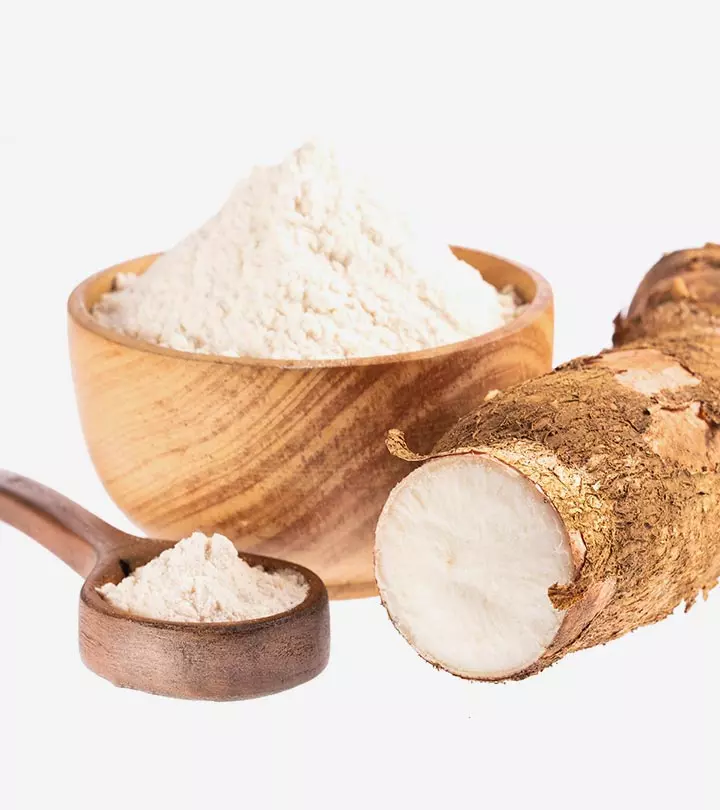
Image: Shutterstock
The many benefits of arrowroot powder make this popular dietary supplement a must-have for overall wellness. So, what is arrowroot powder? It is a gluten-free starch obtained from the rhizomesi Continuously expanding horizontal underground stems that occasionally produce roots and lateral shoots. of tropical plants. Since 5000 BC, it has been cultivated as a food starch and is an effective remedy for diarrhea (1). Research suggests that arrowroot flour may also help manage diabetes and can be used to prepare diabetic-friendly snack bars (2).
This article discusses the benefits of arrowroot powder, nutrition provided, how to use it, and any potential side effects. Take a look.
 Know Your Ingredient: Arrowroot Powder
Know Your Ingredient: Arrowroot PowderWhat Is It?
A fine, white gluten-free powder derived from the roots of the arrowroot plant.
What Are Its Benefits?
Promotes digestive health, boosts immune function, and aids in diabetes treatment.
Who Can Use It?
People with celiac disease and gluten sensitivity.
How Often?
For baking, the recommended amount is typically 1–2 tablespoons per cup of flour.
Caution
Avoid consuming it in large amounts as it may cause digestive issues, such as bloating, gas, and diarrhea.
In This Article
What Are The Health Benefits Of Arrowroot Powder?
Arrowroot is gluten-free, and this means it could be an ideal addition to the diet of those who are gluten-sensitive
. The powder is also rich in fiber, and this is another reason you can include it in your diet. Some research shows that arrowroot may also help in the management of diabetes.
1. Can Promote Digestive Health

Preliminary studies show that arrowroot powder can help treat diarrhea in patients with irritable bowel syndrome (1). In the study, arrowroot powder could also reduce daytime bowel frequency and help relieve constipation in certain subjects.
The starch in arrowroot powder may aid in the fermentation of intestinal bacteria. This increases fecal bulk and results in efficient bowel action (1). In certain individuals, this may mean lesser abdominal pain in the long run.
Arrowroot is a powerful source of starch. Consuming it means more starch enters your colon. Starch acts as fodder for colonic bacteria, stimulating and proliferating their turnover rate. This also may promote digestive health (1).
2. Is Gluten-Free

Arrowroot starch is gluten-free. Gluten-free products, in general, contain starch. The starch plays a role in gelling, thickening, adhesion, stabilizing, and texturizing (3).
Some reports suggest that arrowroot starch may also help in the management of celiac disease (4).
You can try including arrowroot in your gluten-free cooking. You can use the powder to thicken puddings or sweet pie fillings. Substitute baking powder with arrowroot powder. Arrowroot starch is also an ideal replacement for eggs in baked goods.
3. Can Be Good For Babies

The gluten-free property of arrowroot can make it a healthier alternative for babies. Also, arrowroot has high digestibility. Some people believe that it can soothe an upset stomach (5).
Though there is no direct research stating the effects of arrowroot on babies, its easy digestibility (and lack of gluten) makes it safe for use in baby food.
4. May Boost Immune Function

Arrowroot powder was found to stimulate the immune system in mice studies. This effect was attributed to the resistant starch in the powder, which may act as dietary fiber (5).
In the normal digestive process, the resistant starch in arrowroot powder releases glucose and oligosaccharidesi A carbohydrate type made of a fixed and relatively small number of monosaccharides (carbohydrates with one sugar unit) linked together. . The oligosaccharides are indigestible and could play an important role in modulating the immune system (5).
Another study with arrowroot tea showed the root might effectively inhibit the microbial growth of both gram-negativei A bacteria type that is resistant to a majority of the currently used antibiotics and drugs. and gram-positivei A bacteria with a thicker cell wall that tends to be less resistant to antibiotics and drugs. foodborne pathogens (6).
This effect of arrowroot tea was especially true with liquid foods, including ground beef and mushroom soup (6).
 Trivia
Trivia5. May Aid Diabetes Treatment

Boiled arrowroot has a low glycemic index of 14 and could be included in a diabetes diet. The tuber is a promising ingredient in the production of low GI cookies (7).
However, information about arrowroot and its antidiabetic properties is limited. If you have diabetes and want to use arrowroot to manage the condition, please consult your doctor.
Most benefits of arrowroot are still being researched. Some anecdotal evidence suggests its efficacy in promoting oral health and treating urinary tract infections. However, there is no scientific evidence to prove these claims.
There are other ways of using arrowroot. In the following section, we will explore them.
Key Takeaways
- Arrowroot powder may improve digestion and help with issues related to bowel diseases and relieve constipation.
- It is an alternative for those with a gluten intolerance.
- Consuming arrowroot tea may help slow down microbial growth.
- Consult a doctor before using any arrowroot products to avoid liver inflammation.
How Else Can You Use Arrowroot Powder?
The cosmetic uses of arrowroot are not scientifically proven, but anecdotal evidence supports them. Following are a few ways you can use this starch to enhance your appearance:
- As A Base For Makeup: If you are into DIY makeup, arrowroot can help. A blend of this starch, along with cinnamon and cocoa powder, can make for a perfect foundation.
- As A Dry Shampoo: Massage the starch powder into your scalp and the first couple of inches of your hair. Proponents claim that the powder will absorb the oils in the scalp and make hair clean and bouncy.
- A Homemade Acne Treatment: The starch can absorb excess sebum oils and penetrate the skin, thereby offering natural healing and skincare.
 Quick Tip
Quick TipHow Do You Use Arrowroot Powder In Cooking?
Arrowroot is healthy, and using it in cooking is simple. The following tips can help:
- You can use arrowroot powder as a thickener. Use it to thicken soups, stews, sauces, custards, and gravies.
- You can also use it to make fried food crunchier.
- Mix arrowroot powder into beverages (like juice) and drink straight.
- Use the powder in high-heat cooking. It will break down easily if used for prolonged high-heat cooking. You can also use it instead of cornstarch.
- Use the powder in baking and desserts as it gives more structure to the finished product.
- Replace eggs in your baking dishes with arrowroot powder.
A blogger reviewed the taste after making vegan arrowroot ice cream on their blog: “It did come out very good, [with] excellent consistency, but something, maybe the arrowroot or the almond milk, gives it a cinnamon flavor that makes it un-versatile (i).” The blogger advised adding artificial flavoring to enhance the flavor of the ice cream.
 Quick Tip
Quick TipIn the following section, we will look at the nutritional profile of arrowroot. This will give you more insight into the nutrients in the tuber that is responsible for its benefits.
Let us explore the alternatives for Arrowroot in the next section.
Substitutes For Arrowroot Powder
The following substitutes are well-known because they have similar properties.
- Tapioca Starch
It shares a similar neutral flavor and works well for thickening sauces, soups, and gravies. - Cornstarch
This might make your dish slightly glossier compared to arrowroot. However, you need to use a lesser amount of cornstarch as it gives a thicker consistency than arrowroot. - Potato Starch
While it has a similar thickening power as arrowroot powder, it can be heavier in some recipes. - Gluten-Free Alternatives
Rice flour and coconut flour are good substitutes, but they might impart a slightly different taste and texture.
In the following section, we will look at the nutritional profile of arrowroot. This will give you more insight into the nutrients in the tuber that are responsible for its benefits.
What Is The Nutritional Profile Of Arrowroot Powder?
| Nutrient | Unit | 1Value per 100 g | 1 cup, sliced = 120.0g | 1 root = 33.0g |
|---|---|---|---|---|
| Water | g | 80.75 | 96.9 | 26.65 |
| Energy | kcal | 65 | 78 | 21 |
| Protein | g | 4.24 | 5.09 | 1.4 |
| Total lipid (fat) | g | 0.2 | 0.24 | 0.07 |
| Carbohydrate, by difference | g | 13.39 | 16.07 | 4.42 |
| Fiber, total dietary | g | 1.3 | 1.6 | 0.4 |
| Minerals | ||||
| Calcium, Ca | mg | 6 | 7 | 2 |
| Iron, Fe | mg | 2.22 | 2.66 | 0.73 |
| Magnesium, Mg | mg | 25 | 30 | 8 |
| Phosphorus, P | mg | 98 | 118 | 32 |
| Potassium, K | mg | 454 | 545 | 150 |
| Sodium, Na | mg | 26 | 31 | 9 |
| Zinc, Zn | mg | 0.63 | 0.76 | 0.21 |
| Vitamins | ||||
| Vitamin C, total ascorbic acid | mg | 1.9 | 2.3 | 0.6 |
| Thiamin | mg | 0.143 | 0.172 | 0.047 |
| Riboflavin | mg | 0.059 | 0.071 | 0.019 |
| Niacin | mg | 1.693 | 2.032 | 0.559 |
| Vitamin B-6 | mg | 0.266 | 0.319 | 0.088 |
| Folate, DFE | g | 338 | 406 | 112 |
| Vitamin A, RAE | g | 1 | 1 | 0 |
| Vitamin A, IU | IU | 19 | 23 | 6 |
| Lipids | ||||
| Fatty acids, total saturated | g | 0.039 | 0.047 | 0.013 |
| Fatty acids, total monounsaturated | g | 0.004 | 0.005 | 0.001 |
| Fatty acids, total polyunsaturated | g | 0.092 | 0.11 | 0.03 |
*values sourced from USDA, arrowroot, raw
As we mentioned earlier, arrowroot is versatile. It can be used in various ways. But does this mean anyone can consume it? Or does it have any contraindications?
What Are The Side Effects Of Arrowroot Powder?
Arrowroot is generally safe for most people. There are no proven interactions or side effects with respect to arrowroot.
However, there was a case of toxic hepatitis in two Korean women after the intake of arrowroot juice (8). The symptoms included nausea, vomiting, and jaundice. The study highlights the possibility of toxic hepatitis following the ingestion of arrowroot juice. Hence, please consult your physician before consuming an arrowroot.
Infographic: Arrowroot Powder
Arrowroot powder is a delightful gluten-free thickening agent packed with many beneficial nutrients. Its health benefits are numerous, and you can use it in a variety of dishes.
Check out the infographic below to learn more about its availability worldwide, the types of arrowroot available on the market, and the ways to rejuvenate your skin with it. Illustration: StyleCraze Design Team
Arrowroot powder uses are varied and diverse. It is a popular diet supplement especially for people with diabetes. A gluten-free starch, obtained from the roots of tropical plants, arrowroot powder helps in managing diabetes and acts as a safe remedy for diarrhea, especially in babies. While its nutritional benefits are still being studied, arrowroot powder benefits are widely used in cosmetic and makeup applications in formulations of dry shampoo, and talc-free dusting powders. While arrowroot powder is deemed safe, you should stay away from arrowroot juice.
Frequently Asked Questions
Can arrowroot powder help with weight loss?
Yes, arrowroot powder may aid weight loss, as it is low in calories (9). It is also rich in protein and fiber, known to promote satiety (10) (11). This may help reduce overall calorie intake by curbing hunger and preventing overeating, decreasing weight.
What forms are arrowroot available in?
Arrowroot is most commonly available in the powder form and is called arrowroot flour or arrowroot starch.
What is a substitute for arrowroot powder?
The best substitute for arrowroot powder is instant tapioca. This tapioca also holds for long cooking times. Remember to grind it finely before using, or you may find little tapioca balls in the finished dish (as tapioca doesn’t completely dissolve in water).
How is arrowroot powder/flour different from cornstarch? Which of the two is healthier?
While arrowroot is starch extracted from the tubers from the Marantaceae family, cornstarch is starch extracted from the endospermi The part of a seed that serves as the growing plant embryo's food source, which contains carbohydrates, protein, and other nutrients. of a corn kernel.
More importantly, cornstarch might have an association with GMO, but arrowroot doesn’t.
Cornstarch comes from grains and could be high in protein and fat. It needs a higher temperature for thickening. On the other hand, arrowroot has less protein and fat and requires a lower temperature for thickening.
Arrowroot flour seems to be the healthier alternative, although we need more research to understand how. However, you can replace cornstarch with arrowroot in your cooking.
How long does arrowroot powder last, and what are some tips for storing it effectively?
Arrowroot powder can last for 3-4 years if stored in an air-tight container in a cool place.
Can arrowroot powder be consumed by people with certain dietary restrictions, such as vegans or those following a low-carbohydrate diet?
Yes, arrowroot is a white, powdery starch obtained from plants and is low in carbohydrates. Hence, it can be consumed by people allergic to gluten and with irritable bowel syndrome to help soothe diarrhea (1).
What steps should be taken to ensure the purity and quality of arrowroot powder, and how can consumers check for contaminants?
Always look for fine, powdered flour that resembles the cornstarch texture. You can also check the purity of arrowroot powder by mixing it with water. It will emit a faint smell when mixed with water.
Illustration: Arrowroot Powder: 5 Benefits Of This Gluten-Free Ingredient
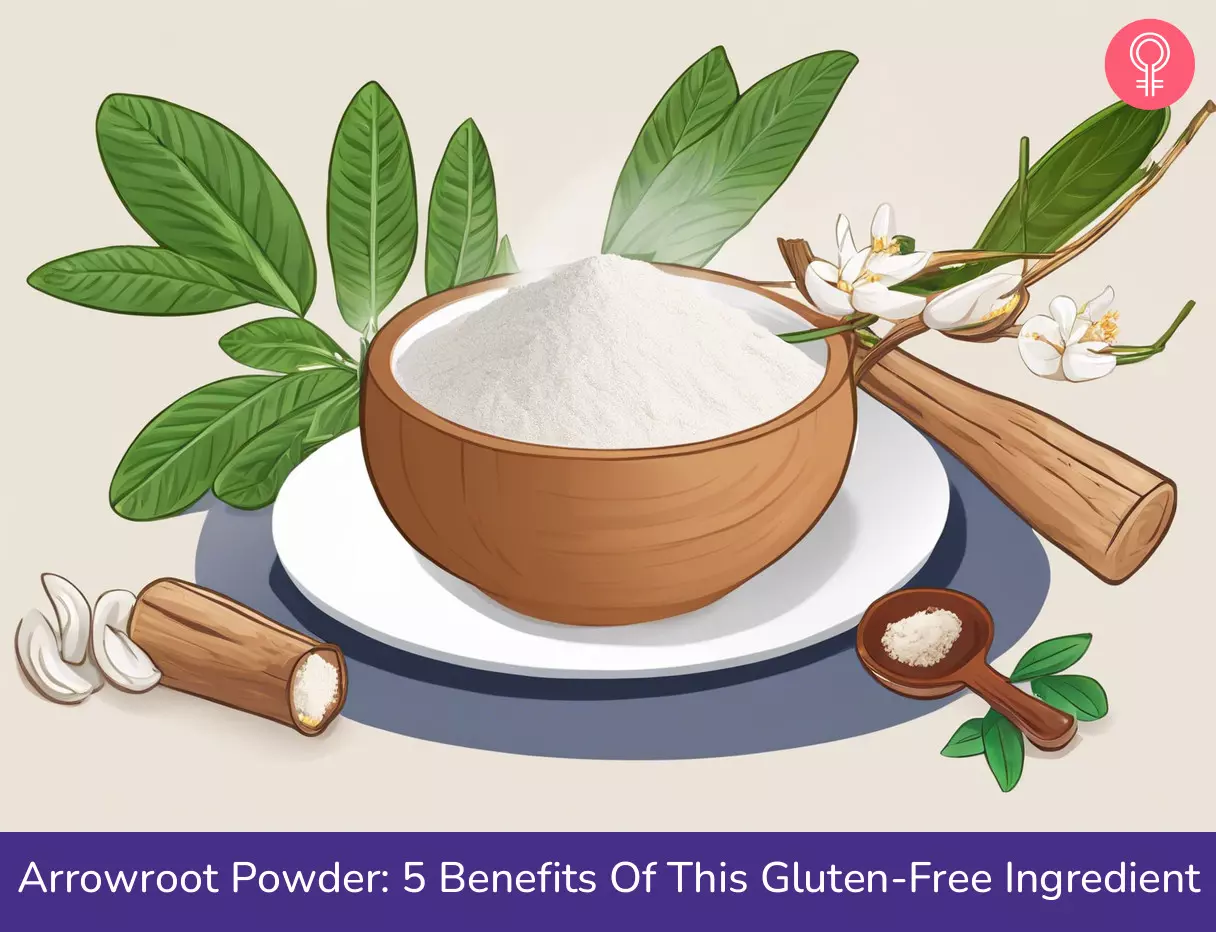
Image: Stable Diffusion/StyleCraze Design Team
References
Articles on StyleCraze are backed by verified information from peer-reviewed and academic research papers, reputed organizations, research institutions, and medical associations to ensure accuracy and relevance. Read our editorial policy to learn more.
- Arrowroot as a treatment for diarrhoea in irritable bowel syndrome patients: a pilot study, Arquivos de gastroenterologia.
https://www.scielo.br/j/ag/a/KHfp7wWWPn5RXSxZRkJ3sMP/?lang=en - Development of arrowroot flour and taro flour snack bar with banana bud flour supplementation as snack for diabetes patient, Astrophysics Data System, Smithsonian Astrophysical Observatory.
https://hcvalidate.perfdrive.com/fb803c746e9148689b3984a31fccd902//?ssa=8d53d34e-1d8d-4067-a53a-c450099f165b&ssb=41352277402&ssc=https%3A%2F%2Fiopscience.iop.org%2Farticle%2F10.1088%2F1755-1315%2F250%2F1%2F012084%2Fpdf&ssi=e268f3a3-8427-40d8-9fa3-cbd19b9bd540&ssk=support@shieldsquare.com&ssm=59738139280435433107665180450753&ssn=042736afdfdd22a33aaf16b2803adc236dd22fcb9568-b5e4-42bd-a28bdb&sso=6ac7a17e-360b70fca73d37266b796f6f5964d8c7ad997c21ff90fd7c&ssp=97567341201695905270169590720226162&ssq=36499857516140047016575161231284600131020&ssr=MTA2LjIwNS45OS43MQ==&sst=Screaming%20Frog%20SEO%20Spider/18.5&ssu=&ssv=&ssw=&ssx=W10= - Starch Characteristics Linked to Gluten-Free Products, Foods, US National Library of Medicine, National Institutes of Health.
https://www.ncbi.nlm.nih.gov/pmc/articles/PMC5409317/ - Celiac disease, Harvard Medical School.
https://www.health.harvard.edu/diseases-and-conditions/celiac-disease - Evaluation of immunostimulatory effect of the arrowroot (Maranta arundinacea. L) in vitro and in vivo, Cytotechnology, US National Library of Medicine, National Institutes of Health.
https://www.ncbi.nlm.nih.gov/pmc/articles/PMC3279578/ - Antibacterial effect of water-soluble arrowroot (Puerariae radix) tea extracts on foodborne pathogens in ground beef and mushroom soup, Journal of Food Protection, US National Library of Medicine, National Institutes of Health.
https://pubmed.ncbi.nlm.nih.gov/15453588/ - The development of low glycemic index cookie bars from foxtail millet (Setaria italica), arrowroot (Maranta arundinacea) flour, and kidney beans (Phaseolus vulgaris), Journal of Food Science and Technology, US National Library of Medicine, National Institutes of Health.
https://www.ncbi.nlm.nih.gov/pmc/articles/PMC5430171/ - Two cases of toxic hepatitis caused by arrowroot juice, Clinical, and Molecular Hepatology
https://www.e-cmh.org/journal/view.php?year=2009&vol=15&no=4&spage=504 - Arrowroot, raw
https://fdc.nal.usda.gov/food-details/168490/nutrients - Protein, weight management, and satiety
https://pubmed.ncbi.nlm.nih.gov/18469287/ - The effect of fiber on satiety and food intake: a systematic review
https://pubmed.ncbi.nlm.nih.gov/23885994/
Read full bio of Kelly Mulhall
Read full bio of Ravi Teja Tadimalla
Read full bio of Arshiya Syeda
Read full bio of Aparna Mallampalli





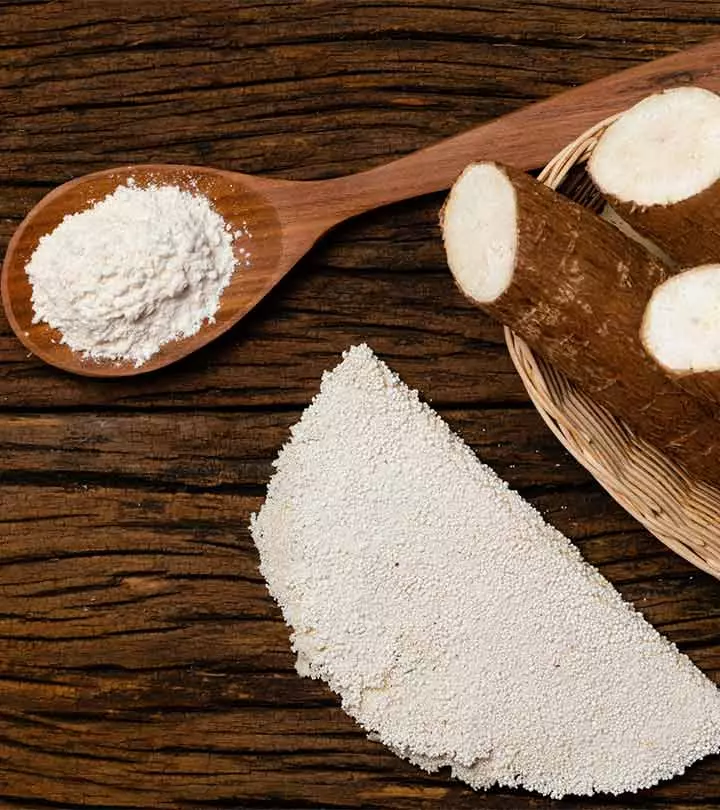
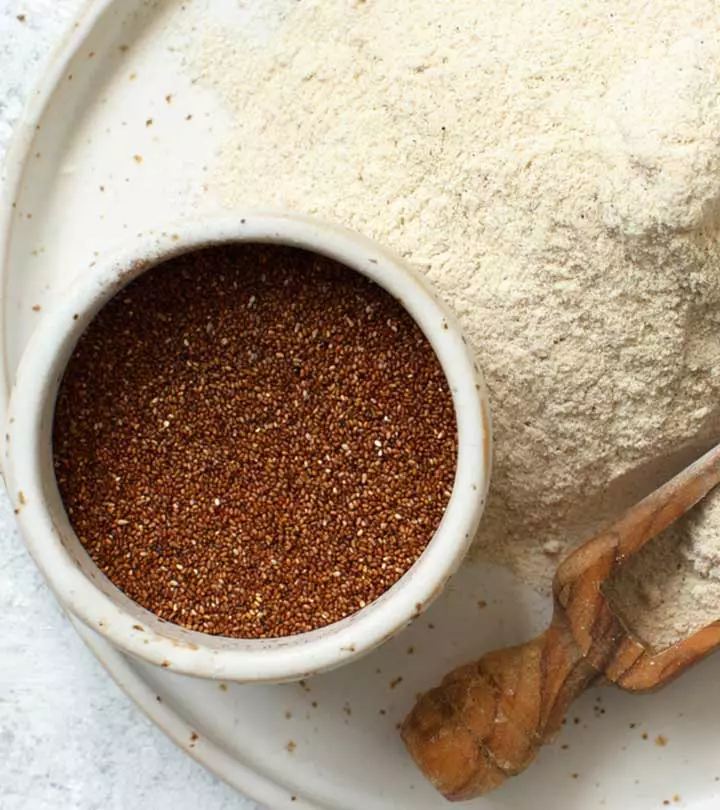

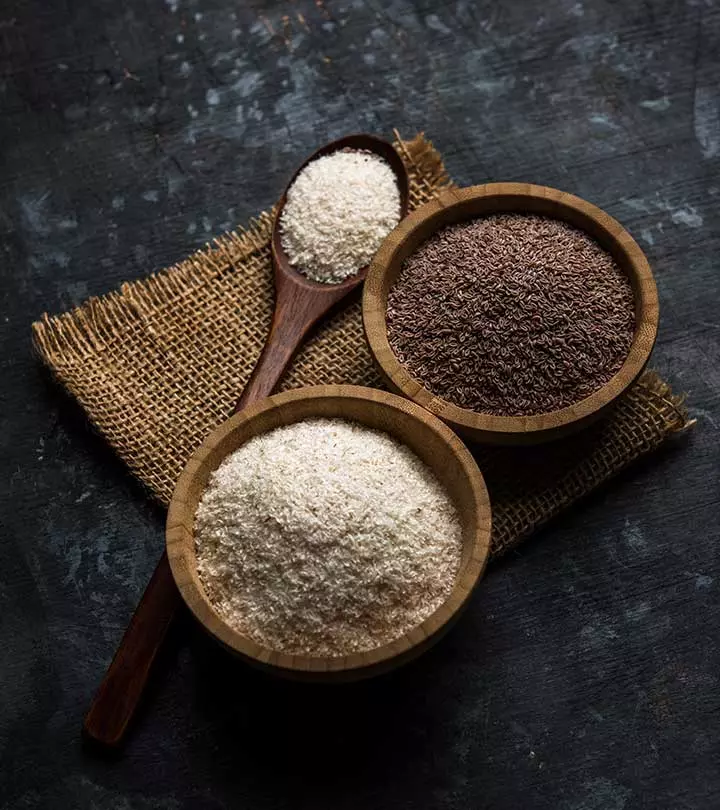
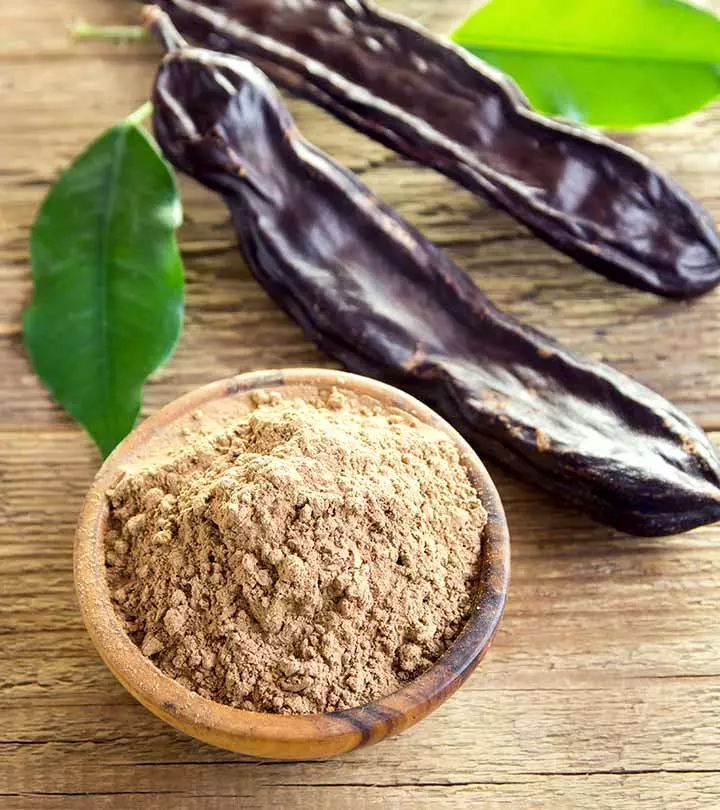
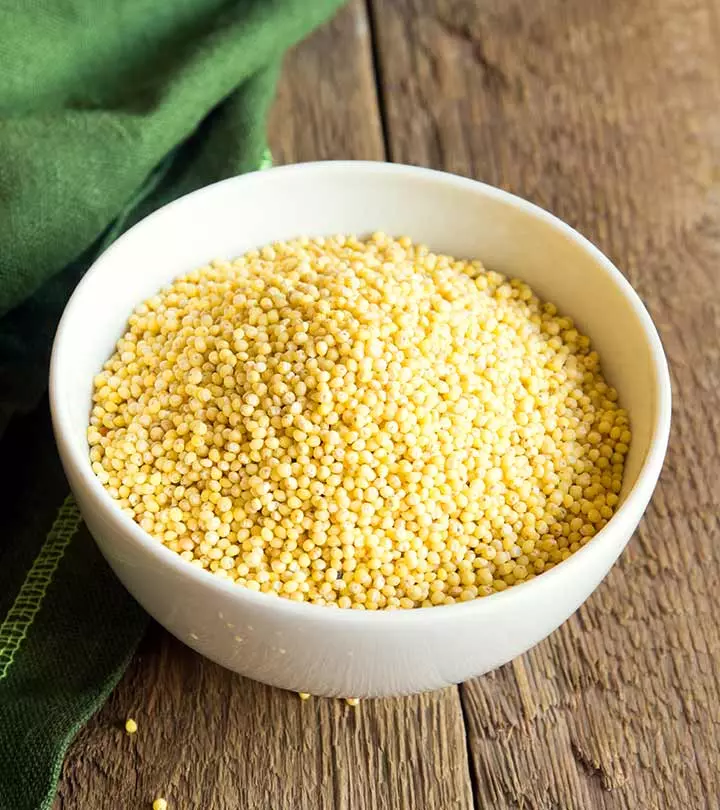
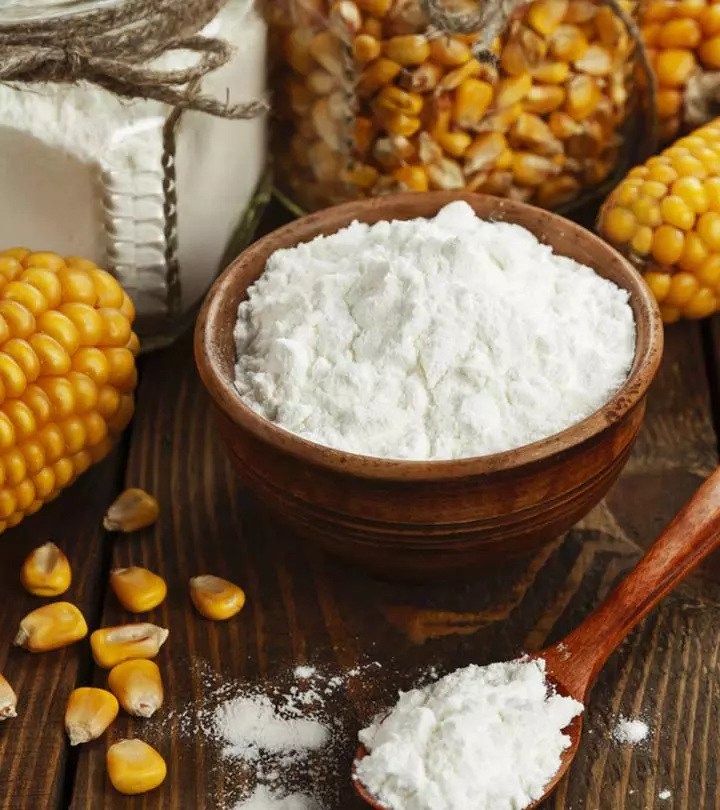

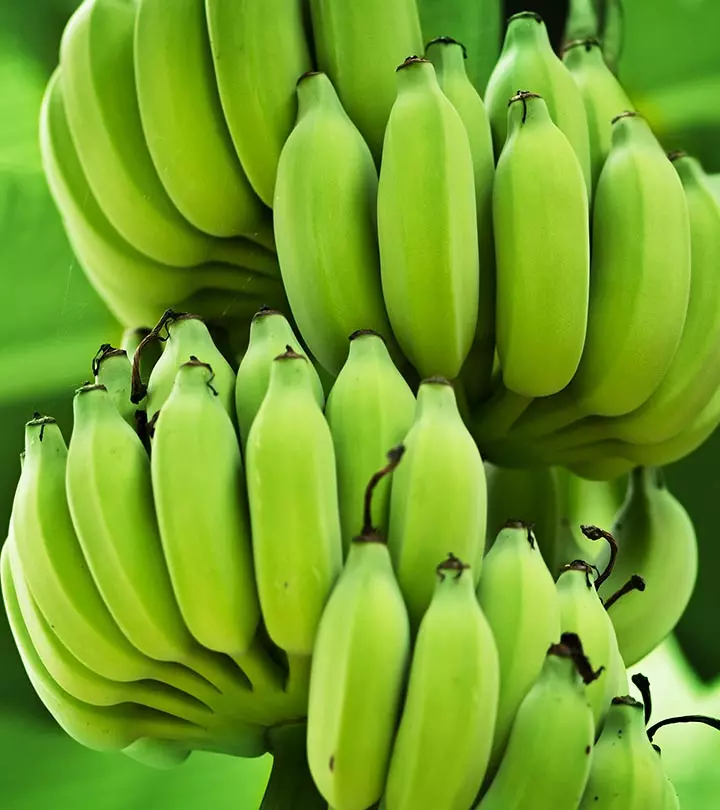


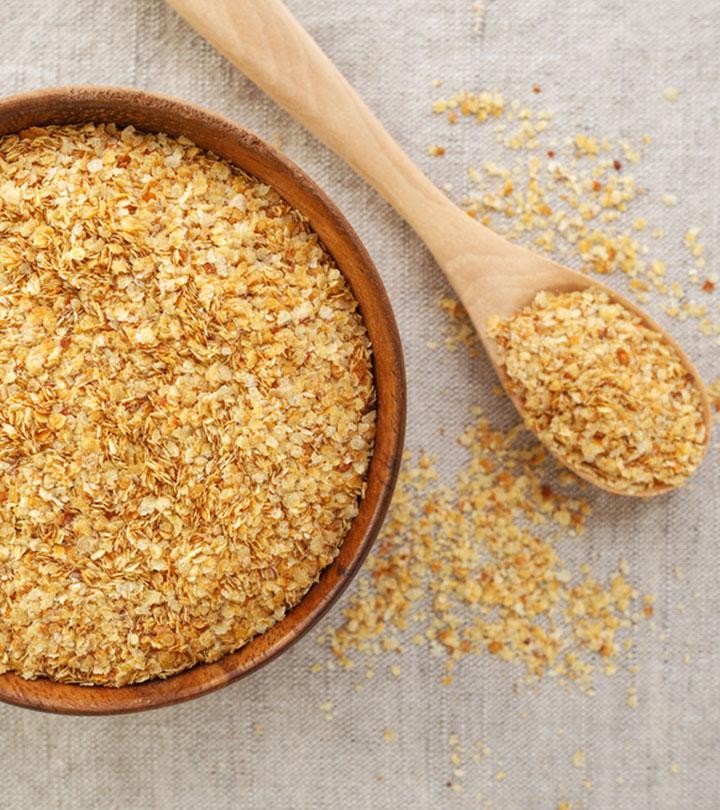
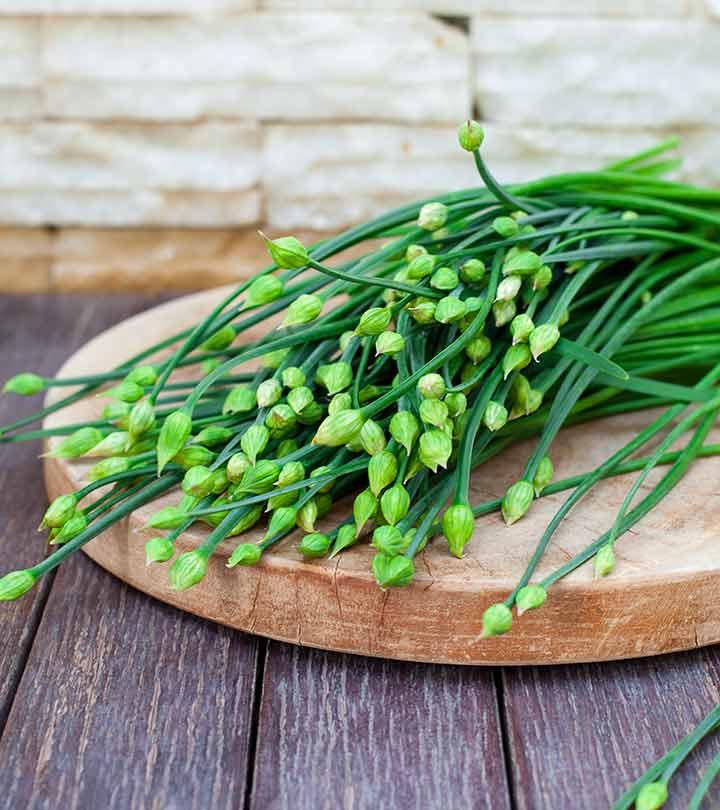
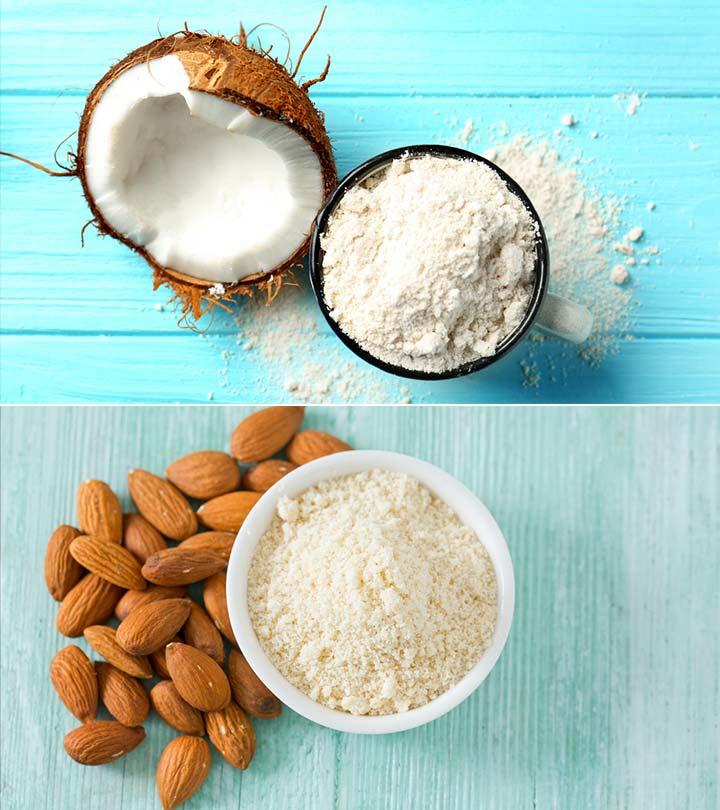


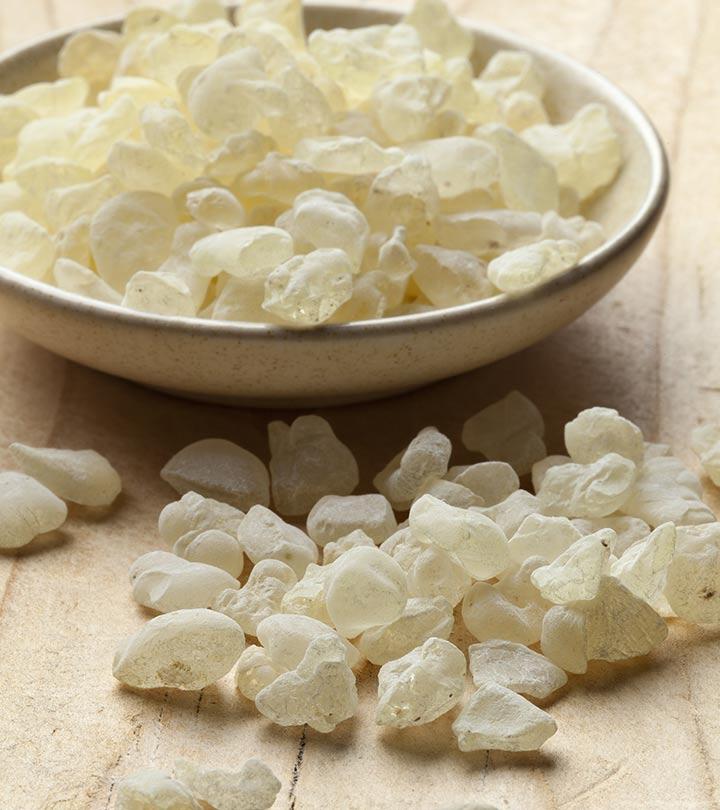
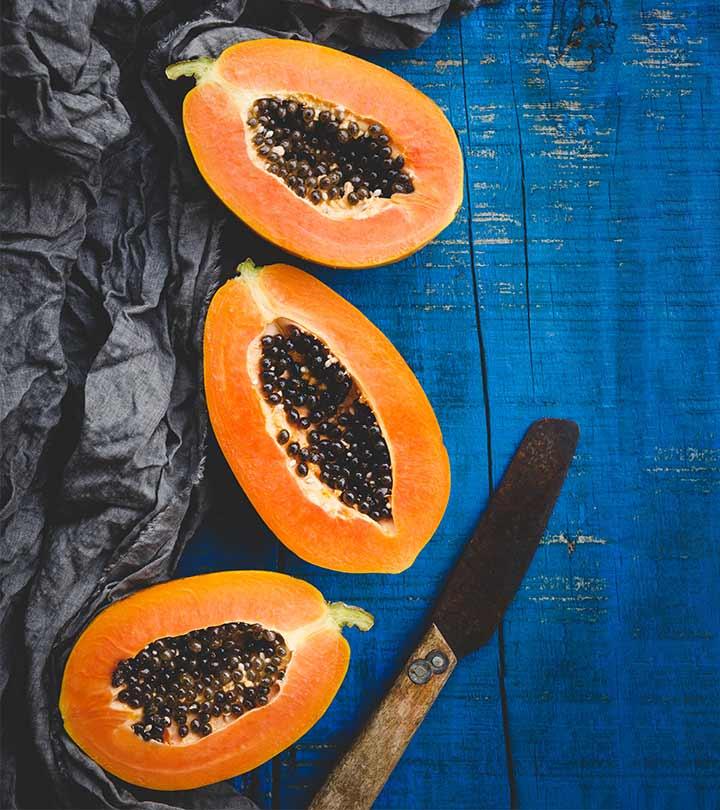
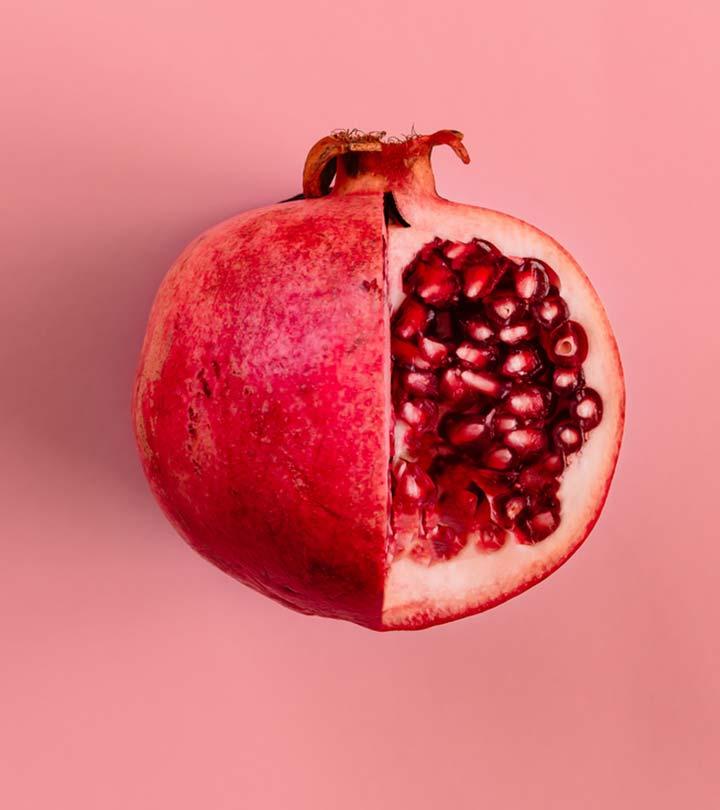
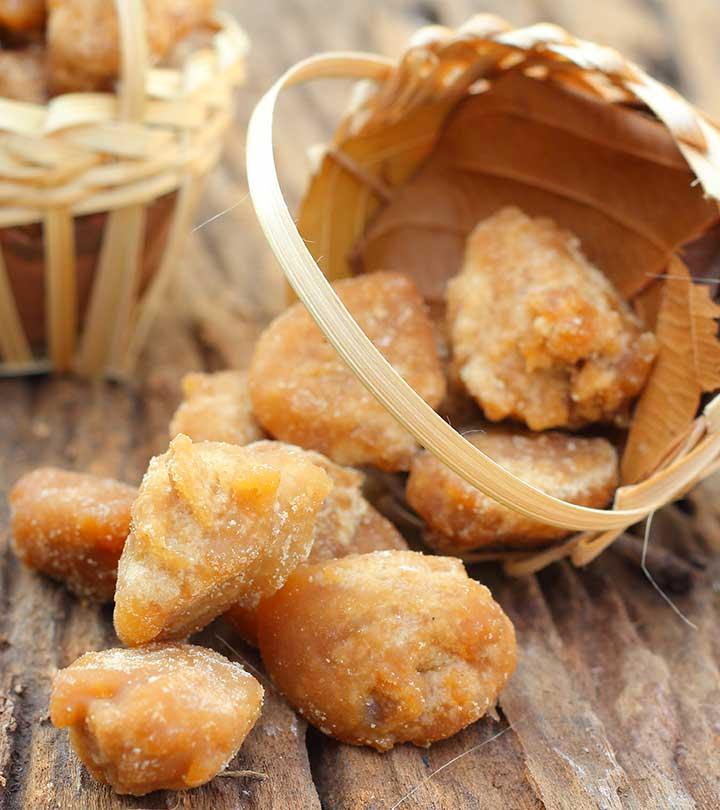
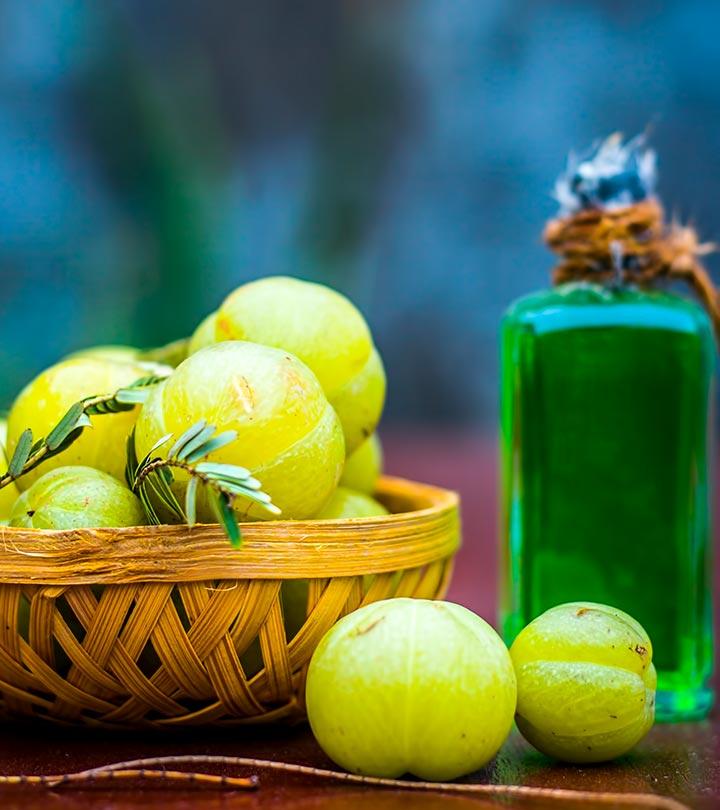
Community Experiences
Join the conversation and become a part of our empowering community! Share your stories, experiences, and insights to connect with other beauty, lifestyle, and health enthusiasts.